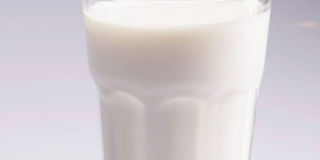How to get important body minerals

Milk and dairy are rich in bone-building nutrients, specifically calcium, vitamin D, protein, phosphorus, magnesium, potassium, vitamin B12 and zinc. PHOTO/ NET
The body needs minerals but they are not manufactured in the body. They are obtained from food sources that we eat. There are those that are needed in the body in large amounts, moderate and very small amounts.
According to Bena Okiria, a public health nutritionist, it is also important to note that different minerals are needed under different conditions and ages based on dietary requirements. For instance, adolescents, toddlers, pregnant women and the elderly all have different dietary requirements.
Iron
Iron helps in the formation and functioning of blood and its constituents in the circulatory system and liver according to Dr. Peter Milton Rukundo, Lecturer Kyambogo University Dept. of Human Nutrition and Home Economics.
Lack of it can lead to anaemia and problems of heart and liver failure. At some point it was the fourth leading cause of mortality. Also, the 2016 Uganda Demographic and Health Survey reported 53 per cent anaemia in children under five years and 32 per cent in Women of reproductive age. It can be obtained from legumes like dried beans, red meats, dark leafy vegetables, fish and poultry.
Sodium
It is needed for proper fluid balance, contraction of muscles and nerve transmission. Rukundo says this mineral can be obtained from salt, soy, milk, vegetables and unprocessed meats. Potassium and chloride minerals also perform the same function as sodium and are present in whole grains, legumes and fresh fruits.
Calcium
He says, “This mineral is most important for the growth of strong bones and teeth, blood clotting, boost immune system, contraction and relaxation of muscles, as well as regulating blood pressure. Calcium is largely found in milk and its products, legumes, vegetables like broccoli and mustard greens, and fish with bones such as silver fish.”
Zinc
If a child has had diarrhea and vomiting for some time, physicians usually give the child zinc tablets according to Bena Okiria, a public health nutritionist. She says, “Zinc is a part of many enzymes and is needed in the formation of genetic material; it helps in wound healing, foetal development, sperm production as well as boosting the immune system. It can be found in meats, fish, vegetables and whole grains.”
Iodine
This mineral is found in the thyroid hormone that helps regulate growth, development and metabolism. A deficiency of this mineral causes goiter. It can be found in sea foods, iodized salt and milk products.
Chromium
This trace mineral according to Okiria works with insulin to regulate blood sugar levels. It is largely present in foods like brewer’s yeast, whole grains, nuts and liver.
Other important minerals include copper, sulfur, phosphorus, fluoride, selenium, manganese and magnesium among others. They should equally be supplied in the diet so as to perform their specific and inter-related body functions.
Proper food preparation
Wash vegetables before cutting them to preserve the nutrients. If possible, some of the vegetables should be eaten raw if we want to get the best nutrients from them.
Those that really need cooking should be stir fried and not boiled.
If you want to eat raw vegetables in a salad, one should add vinegar to inactivate the phytates that naturally exist in all plant sources and inhibit the absorption of zinc.
Also, fermenting, sprouting and soaking some foods like dried beans overnight helps to deactivate the phytates.




